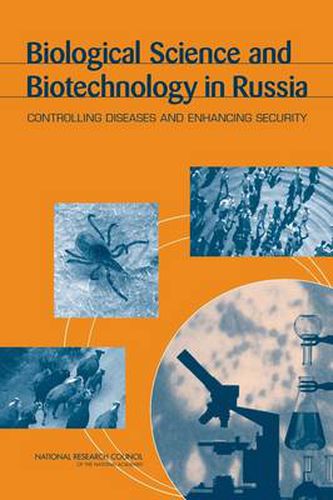Readings Newsletter
Become a Readings Member to make your shopping experience even easier.
Sign in or sign up for free!
You’re not far away from qualifying for FREE standard shipping within Australia
You’ve qualified for FREE standard shipping within Australia
The cart is loading…






In July 2005, the National Academies released the report Biological Science and Biotechnology in Russia: Controlling Diseases and Enhancing Security. The report offered a number of recommendations that could help restore Russiaa ™s ability to join with the United States and the broader international community in leading an expanded global effort to control infectious diseases. A proposed bilateral intergovernmental commission could play a pivotal role toward that end as cooperation moves from assistance to partnership. The report proposed the establishment of two model State Sanitary Epidemiological Surveillance Centers in Russia, more focused support of competitively selected Russian research groups as centers of excellence, the promotion of investments in biotechnology niches that are well suited for Russian companies, and expanded opportunities for young scientists to achieve scientific leadership positions in Russia. Also, the report highlighted the importance of U.S. programs that support the integration of former Soviet defense scientists with civilian researchers who had not been involved in military-related activities.
$9.00 standard shipping within Australia
FREE standard shipping within Australia for orders over $100.00
Express & International shipping calculated at checkout
In July 2005, the National Academies released the report Biological Science and Biotechnology in Russia: Controlling Diseases and Enhancing Security. The report offered a number of recommendations that could help restore Russiaa ™s ability to join with the United States and the broader international community in leading an expanded global effort to control infectious diseases. A proposed bilateral intergovernmental commission could play a pivotal role toward that end as cooperation moves from assistance to partnership. The report proposed the establishment of two model State Sanitary Epidemiological Surveillance Centers in Russia, more focused support of competitively selected Russian research groups as centers of excellence, the promotion of investments in biotechnology niches that are well suited for Russian companies, and expanded opportunities for young scientists to achieve scientific leadership positions in Russia. Also, the report highlighted the importance of U.S. programs that support the integration of former Soviet defense scientists with civilian researchers who had not been involved in military-related activities.